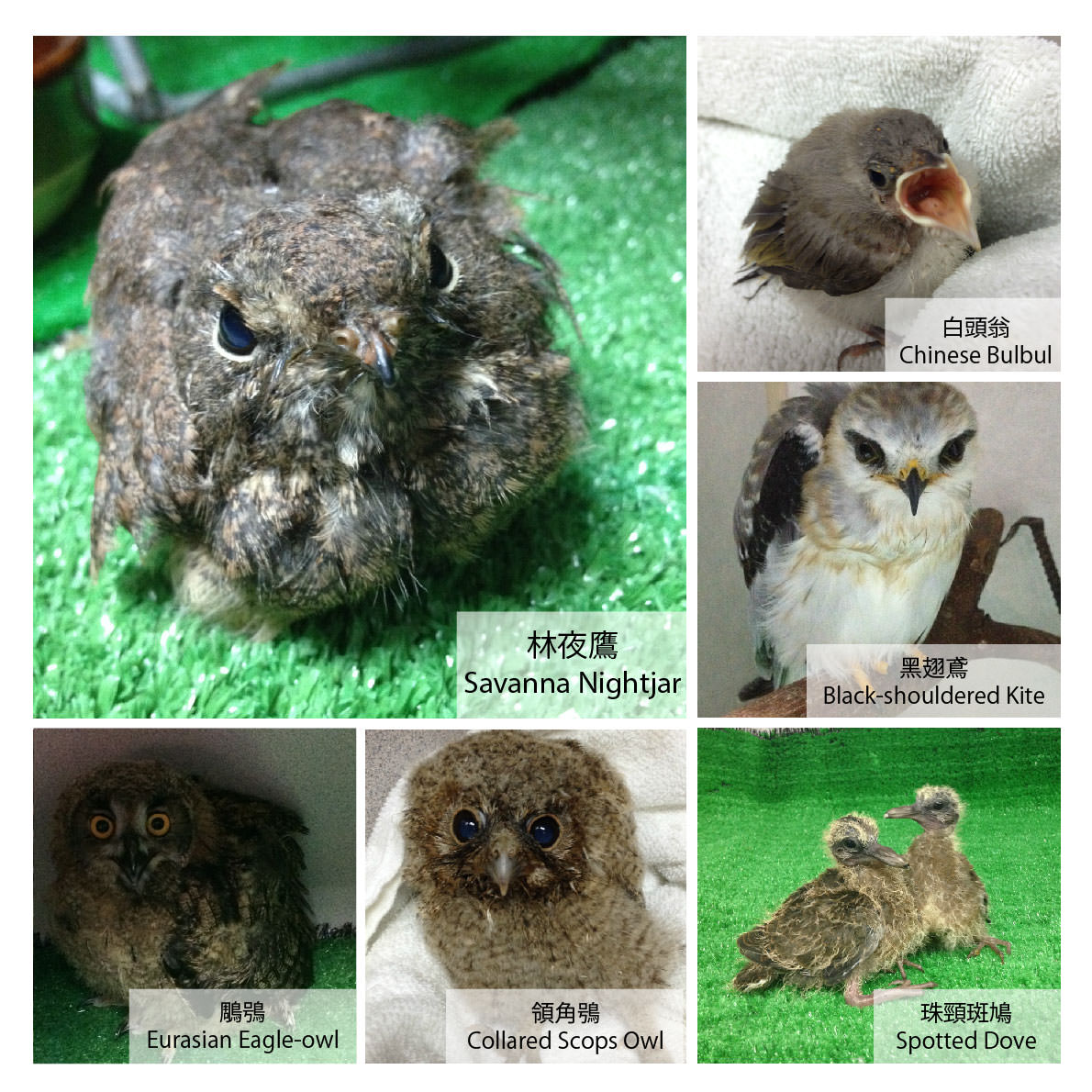What to do if you encounter a baby bird in the wild?

Spring and summer are nesting seasons for most wild birds. In the past 2 months, the Wild Animal Rescue Centre (Rescue Centre) has received more than 100 young birds rescued by members of the public, the Agriculture, Fisheries and Conservation Department (AFCD) and the Society for the Prevention of Cruelty to Animals (SPCA). A wide range of baby bird species were received.
Knowing what to do when you find a baby bird can greatly increase its chance of survival.
Is it a hatchling or a fledgling?
A hatchling is a recently hatched bird which is still in the nest and requires parental care. Hatchlings may appear naked or only have tufts of feathers.
A fledgling is the most mature stage of hatchling. Birds reaching this stage have well developed plumage and maybe able to fly a short distance but the parent would still be caring for them. You may see them hopping on the ground.
Does the young bird really need your help?
- Keep a distance and observe the bird: Watch it carefully and see if it really needs your help. Usually, the parent birds are just nearby, but they may have been scared off by human presence. It may take at least half an hour for the parent birds to return. If they are looking after the young bird, it would be a mistake to ‘rescue’ the bird.
- Put it back in the nest if necessary: For a hatchling, the best place to stay is its own nest. Hence, try to search for its nest and gently put it back, the parents will be near and should start to care for the young bird.
- Place the bird in a safe area: If you cannot spot any nests nearby, place the bird in a sheltered and safe area, such as a tree branch. The parent birds will able to hear their baby.
- Contact the AFCD or the SPCA: If the bird is injured (bleeding or with obvious injury) or the parents do not return to care for it, please report to the AFCD at 1823 or the SPCA Rescue Team at 2711 1000.
In Hong Kong, it is illegal to keep wild birds in captivity. Young birds normally require specialized diets and intensive care. Keeping wild birds in an inappropriate way will only cause them to recognise and be attracted to human and become non-releasable. Please do not attempt to handle or raise the baby birds by yourself, as inappropriate care may cause unnecessary suffering. If you have any enquiries, please contact us at fauna@kfbg.org.


